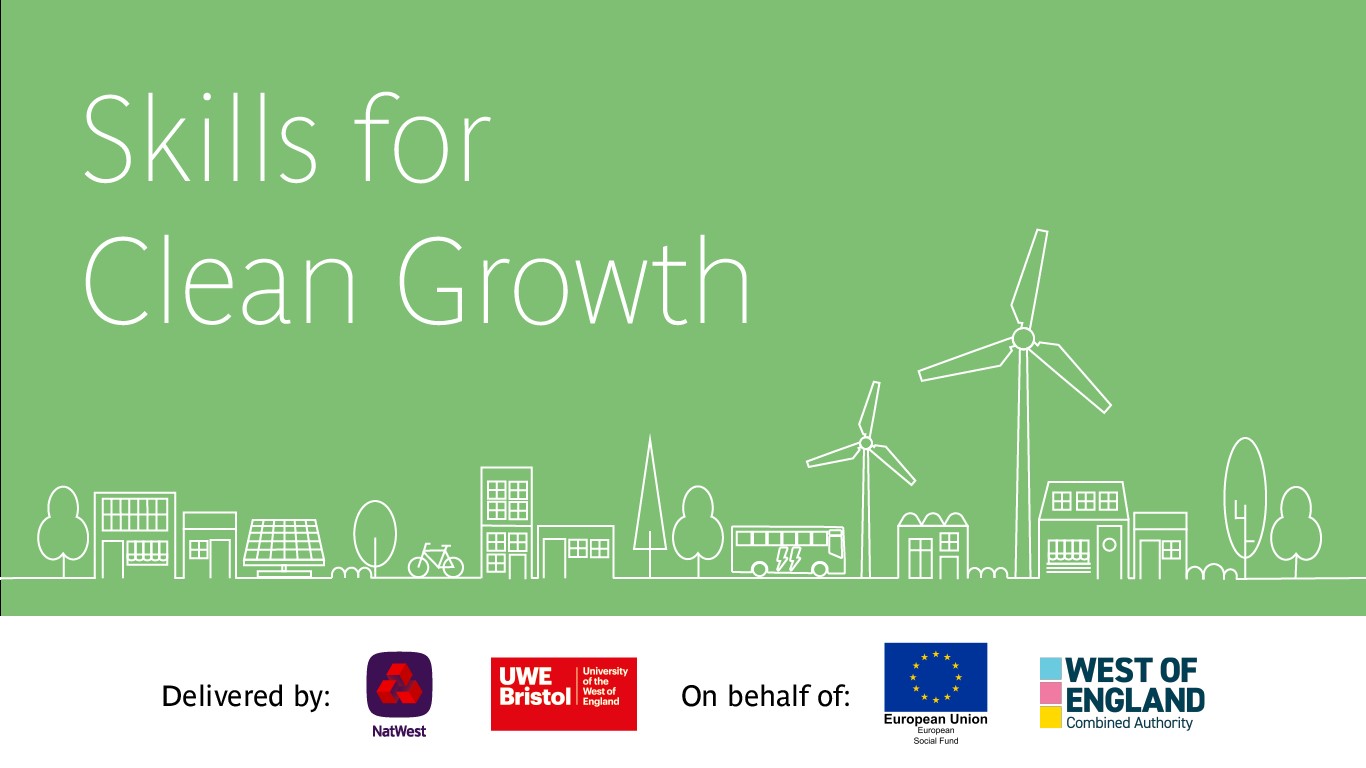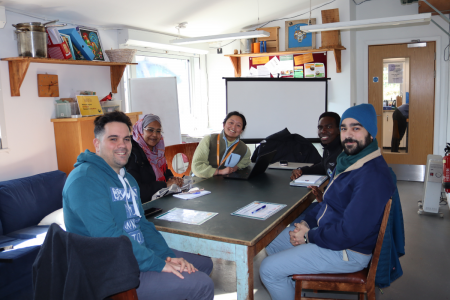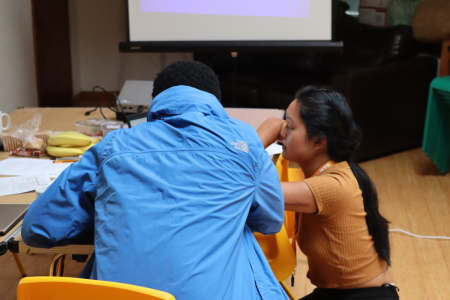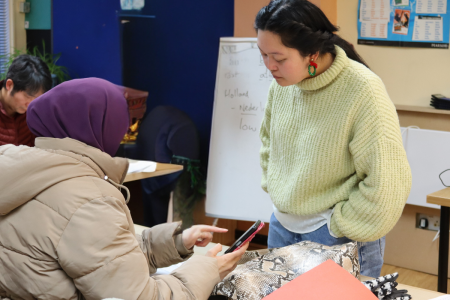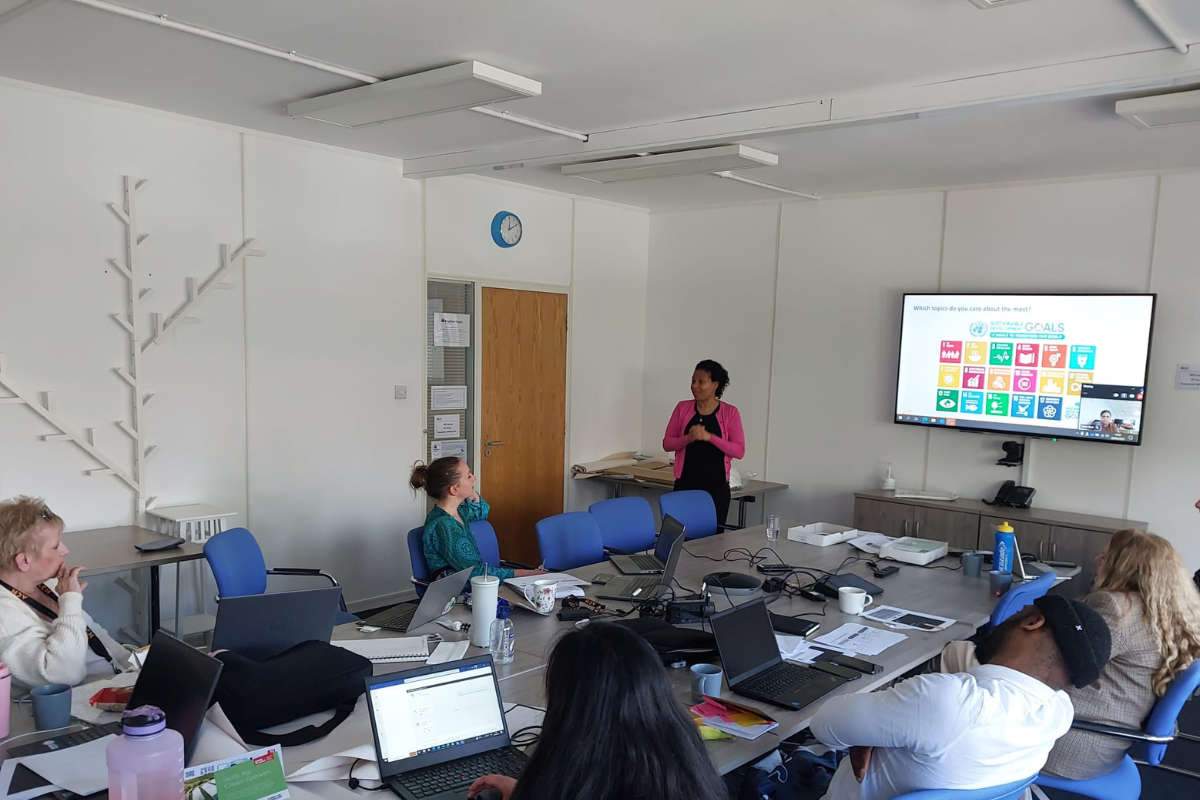
UWE's Business Sustainability Workshop: Empowering Refugee and Migrant Entrepreneurs
On the 27th of April, ACH invited the University of the West of England (UWE) as part of the wider West of England Combined Authority (WECA) led Workforce for the Future Programme to deliver a workshop for refugee and migrant-led businesses, helping them integrate greater sustainability into their organisational strategies and practices. The discussion revolved around mapping Sustainable Development Goals (SDGs) into these businesses which saw diverse participation from 6 countries: Afghanistan, Egypt, Sudan, Turkey, Ukraine, and Syria.
The objective of the workshop was to enhance participants’ understanding of the core principles of sustainability and how they can weave Sustainable Development Goals into their businesses. During the session, the entrepreneurs also brainstormed how incorporating the SGDs could drive their revenue, create a social impact in the community and strengthen their business branding.
The workshop was led by Tanya Popaeu and Chris Parsons. Tanya is a Senior Manager & Sustainability lead at 4C, and Chris is the Clean Growth Business Development Manager at UWE.
Here’s what Chris had to say about the workshop: “Sustainability is a key subject at the very top of the region’s agenda right now so the chance to engage with ACH’s clients and staff was an amazing opportunity to work with businesses and business advisors who are looking to initiate real world solutions that will benefit both the environment and the economy. It was apparent from the very start, the passion, and ideas that participants already had for the topic and the greatest challenge was trying to fit the discussion and inspiration into the time allocated! Working with ACH was a pleasure, and we would love to continue to harness this energy and desire to learn on such a critical area for the region and the planet.”
This interactive session included presentations on global sustainability frameworks, case studies, and group activities to support the participants to incorporate sustainable practices into their business operations. Below are key activities that were covered in the workshop:
- The participants were provided with supplier questionnaire for businesses to understand what phase of implementing sustainability their suppliers are at.
- The workshop gave the participants an opportunity to conduct a SWOT* analysis to evaluate their businesses sustainability position.
- Granting access to Self-Diagnostic Sustainability tools to measure their company’s ESG status.
Here’s what some of the participants had to say about the workshop:
Navid (Founder of Heart of Afghanistan) – “I had limited knowledge before the session and once I joined the workshop it was really good, and I hope there is a second workshop as I would be happy to join it!”
Putting his knowledge from the workshop into practice, Navid has since switched to plastic-free labels and cardboard boxes for food packaging. He sends 10% of his earnings back to his home country to fund education for girls and support business start-ups by women.
Back in his home country, Navid was part of a green movement called “cycle4fun” and had always been incredibly passionate about efforts aimed at protecting the environment and empowering women. His goal is to tackle poverty and lack of access to education for girls in his home country and the workshop gave him a clarity on how to incorporate his social impact goals into his food business in the UK.
Sevilay Kaya (Founder of BluFauna) – “It was really great, and I realised that I had little knowledge about sustainability before the workshop. I used to think sustainability is all about being environment friendly, but the workshop taught me that sustainability is not only related to environment but also about social and governance topics. Out of the sustainability goals I personally feel gender equality is most significant. There is sexual discrimination in my home country, and I want to create a social impact towards this.”
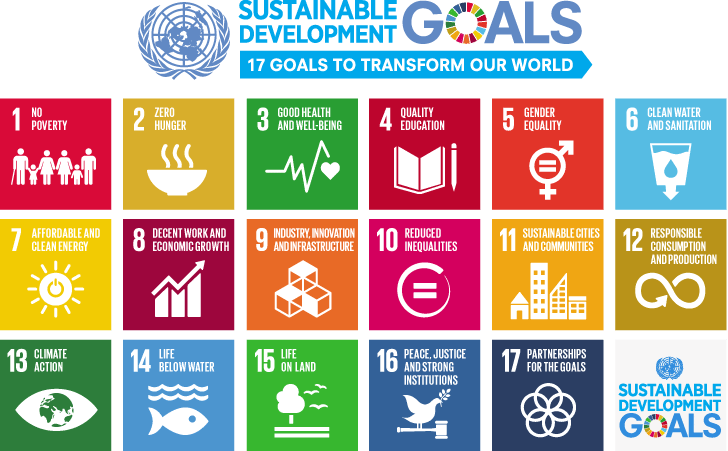
Source: (United Nations**, 2023)
Internationality of SDGs
Collaboration and cooperation are the crux of the SDGs. Inclusive UN processes involving international stakeholders, civil society organizations, and member states allowed for their development. The SDGs are applicable to all the countries, irrespective of their level of development. While the specific targets and priorities may vary from country to country, the underlying objectives of the goals are universally applicable. Each country is responsible for implementing the goals within their own national context and adapting them to their specific needs and circumstances.
Climate change is a global cancer, and it is of utmost significance to include developing nations into the SDG's. Issues such as global warming, poverty and inequality transcend national boundaries. For this reason, the SDGs take on a global scale and encourage concerted efforts. They implore the need for collective action and cooperation across countries. Having faced the effects of climate change firsthand, refugee and migrant-led businesses can be the pioneers of driving sustainability change within their communities. By adopting more sustainable practices, they set examples for other members of their communities to follow and build on.
In this all-encompassing race against time to prevent our atmosphere from warming further, every nation whether big or small, economically flourishing or withering has a right to participate in this trial which threatens our very existence.
If you, or someone you know, are looking for business support in Bristol or want to explore sustainable business development through the Green Growth Accelerator Project, get in touch with our Business Support Team: Business.support@ach.org.uk

Note: This blog post was written by Lordwin Jacob who is a Post Graduate student at Aston University and on an interim placement with ACH.
* SWOT - Strengths, Weaknesses, Opportunities, and Threats, analysis is a framework used to evaluate a company's competitive position and to develop strategic planning
** United Nations (2023). The 17 sustainable development goals. United Nations. Available at: https://sdgs.un.org/goals.
